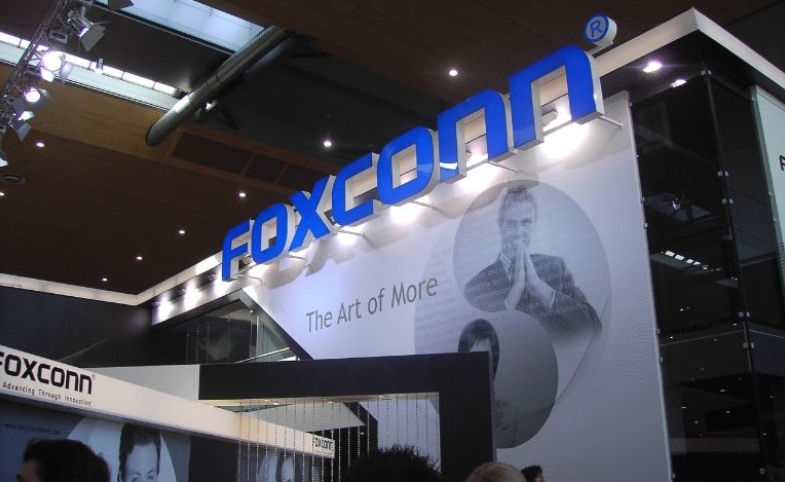Non-state actors have a considerable impact on the field of public diplomacy in a fast-converging world marked by increased interaction among publics and civil society groups across the globe. Sometimes, efforts by non-state...
KEEP READINGThe CPD Blog is intended to stimulate dialog among scholars and practitioners from around the world in the public diplomacy sphere. The opinions represented here are the authors' own and do not necessarily reflect CPD's views. For blogger guidelines, click here.

Awarding Foxconn’s CEO Demonstrates Public Diplomacy, Indian-style
India’s prestigious Padma Awards are given in various fields such as medicine, art, social work, trade and industry, science and technology, literature and education, and sports. Among the seventeen Padma Bhushan Awardees in 2024, the only foreigner was Young Liu from Taiwan. The well-known entrepreneur is CEO and chairman of Foxconn, a Taiwanese multinational electronics manufacturer that produces iPhones. Liu’s award — in the field of trade and industry — exemplifies how India conducts public diplomacy.
Foxconn had an agreement with the Indian company, Vedanta, to set up a semiconductor joint venture in the Indian state of Gujrat. But Foxconn withdrew, and the $19.5 billion failed. It was a major setback for India in its ambition to develop and produce microchips on Indian soil. But in July 2023, Liu visited India to attend the Semicon India 2023 Conference in Gandhinagar, Gujrat. Later, Foxconn announced a desire to establish its semiconductor manufacturing plant in India. Foxconn already has an iPhone factory in the state of Tamil Nadu, and bought a large piece of land in Bangalore, Karnataka.
As Foxconn expands its presence in Asia (particularly South Asia), India has emerged as a welcoming host. Under Prime Minister Narendra Modi, India has focused on making business laws less stringent and corporate-friendly, with the help of the “Make in India and Production Linked Initiatives” initiative.
In Taiwan, the New Southbound Policy initiated during the second term of President Tsai Ing-wen allowed multinational corporations like Foxconn to widen their range of operations, particularly in Southeast Asia. With Taiwan’s outgoing Vice President, Lai Ching-te, now the president-elect, it is believed that he will carry forward the policies of the current Democratic Progressive Party government.
At the same time, Modi is eager for India to become a hub of the semiconductor industry, recognizing it can further India’s digital transformation. Semiconductors form the backbone of modern electronic devices such as smartphones, computers, tablets, Internet of Things (IoT) devices and other advanced technologies. As India undergoes rapid digitization and embraces emerging technologies such as 5G, artificial intelligence and IoT, the demand for semiconductors continues to skyrocket.
Furthermore, the semiconductor industry plays a critical role in fostering innovation and research and development (R&D) activities. By investing in semiconductor fabrication facilities (fabs) and R&D labs, India can strengthen its technological capabilities and foster innovation at home. Doing so would not only reduce dependence on imported semiconductor chips but also enhance the country's competitiveness in the global market.
Only time will tell if this award — a keen act of public diplomacy — will serve to boost business partnerships between Indian and Taiwanese corporations.
To these ends, the Government of India, through the Ministry of Electronics and Information Technology, launched the India Semiconductor Mission (ISM) as a division of Digital India Corporation. The Mission’s objective is to create a vibrant semiconductor and display ecosystem in India. Last June, Modi’s Union Cabinet approved the U.S. chipmaking giant Micron’s proposal to establish a semiconductor unit in Gujrat.
Foxconn should acknowledge this opportunity and put forward a proposal that is mutually beneficial for stakeholders. Foxconn's investment in India aligns with the government's “Make in India” initiative, which aims to promote indigenous manufacturing and attract foreign investment in key sectors. By partnering with Foxconn, India can leverage their expertise, technology and supply chain capabilities to accelerate the growth of its semiconductor industry. Moreover, Foxconn's commitment to ethical and sustainable manufacturing practices aligns with India's focus on responsible and inclusive economic development.
Foxconn’s Chairman Young Liu graciously accepted the Padma Award, “I am deeply honoured to receive the Padma Bhushan from the Government of India,” he said in a statement, “I firmly believe that this is an affirmation of a collaboration that benefits India's long-term development and supports the growth of local economies.” He thanked Modi, the President of India and the Indian people. He said Foxconn is committed to manufacturing in India.
Only time will tell if this award — a keen act of public diplomacy — will serve to boost business partnerships between Indian and Taiwanese corporations.
Visit CPD's Online Library
Explore CPD's vast online database featuring the latest books, articles, speeches and information on international organizations dedicated to public diplomacy.
POPULAR ARTICLES
-
January 29
-
January 20
-
January 28
-
January 2
-
January 8
Join the Conversation
Interested in contributing to the CPD Blog? We welcome your posts. Read our guidelines and find out how you can submit blogs and photo essays >.













